Preventing Sports Injuries: Sports offer an array of benefits, from improving physical health to enhancing mental well-being. However, sports also come with the risk of injuries, which can be a significant setback for athletes of all levels. Whether you’re a professional athlete or a weekend warrior, understanding how to prevent sports injuries is essential for maintaining peak performance and avoiding downtime.
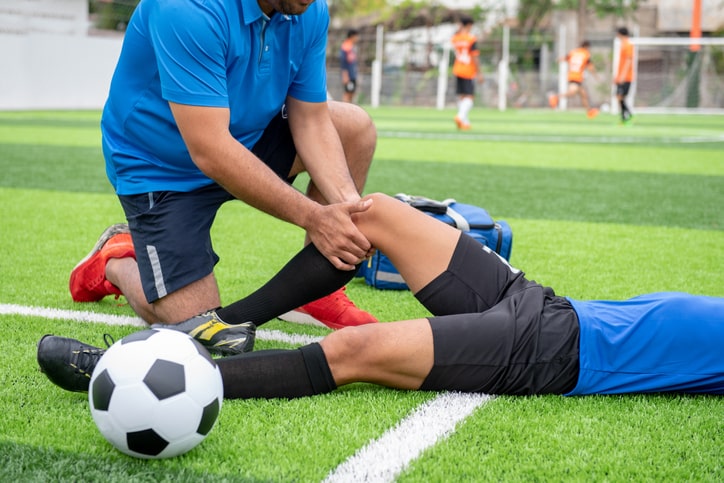
Dr. Gautam Gupta, a renowned orthopedic surgeon and Sports Injury Consultant for the Indian Football Association (W.B. Chapter), has extensive experience in treating sports injuries. With his background in Shoulder & Knee Surgery, trained in Germany and the Netherlands, Dr. Gupta is well-equipped to offer valuable insights into preventing sports injuries. In this blog, we explore his top tips and strategies for staying injury-free while engaging in sports.
Understanding Common Sports Injuries
Before diving into prevention strategies, it’s essential to understand the most common sports injuries. Dr. Gupta frequently treats injuries related to:
- Sprains and Strains: These injuries occur when ligaments (sprains) or muscles and tendons (strains) are overstretched or torn. They are common in sports that involve sudden movements, such as basketball, football, and tennis.
- Knee Injuries: The knee is one of the most vulnerable joints in the body, especially in sports that involve running, jumping, and sudden changes in direction. Common knee injuries include ACL tears, meniscus injuries, and patellar tendinitis.
- Shoulder Injuries: Athletes involved in overhead sports, such as swimming, tennis, and baseball, are at risk for shoulder injuries. Common issues include rotator cuff tears, dislocations, and impingement syndrome.
- Fractures: Bone fractures can occur in any sport, particularly those with a high risk of falls or collisions, such as football, skiing, and cycling.
- Tendinitis: Tendinitis is the inflammation of a tendon, often caused by overuse. It is common in sports that require repetitive motions, such as running, rowing, and golf.
Understanding these injuries helps athletes recognize the importance of prevention and early intervention.
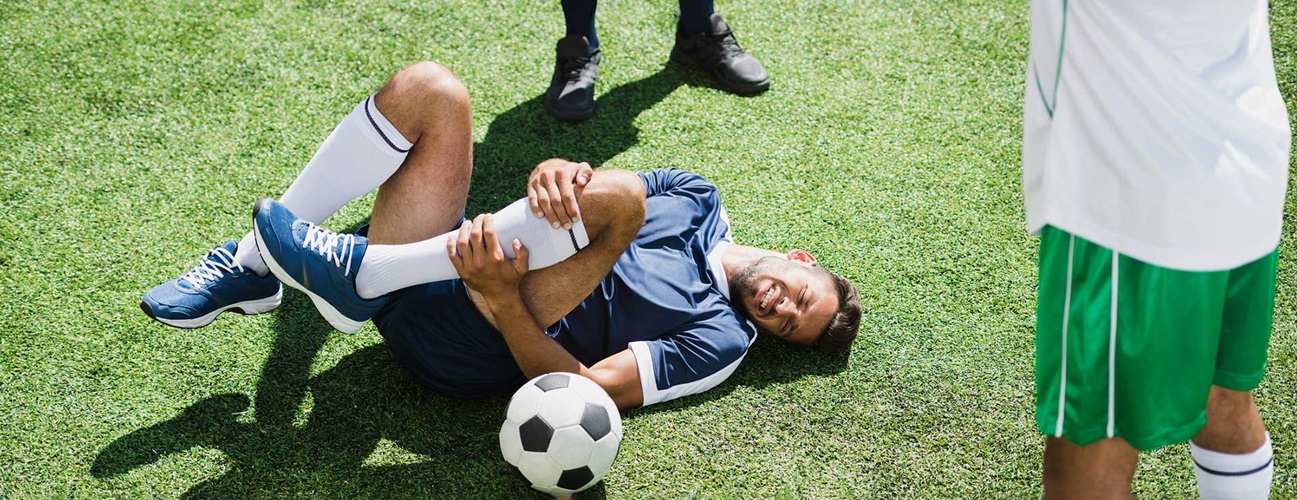
The Importance of Warm-Up and Stretching
One of the most critical steps in preventing sports injuries is proper warm-up and stretching. Dr. Gupta emphasizes that a thorough warm-up increases blood flow to the muscles, making them more flexible and less prone to injury. Here’s how to do it right:
- Dynamic Warm-Up: Engage in dynamic stretches that mimic the movements of your sport. For example, if you’re a runner, include leg swings, high knees, and butt kicks in your warm-up routine. This prepares your muscles and joints for the activity ahead.
- Focus on Major Muscle Groups: Pay attention to the muscles most used in your sport. For example, if you play tennis, focus on your shoulders, wrists, and legs. Stretching these muscles reduces tension and increases flexibility.
- Gradual Intensity Increase: Start your warm-up at a low intensity and gradually increase it. This helps your body transition smoothly from rest to activity, reducing the risk of sudden injuries.
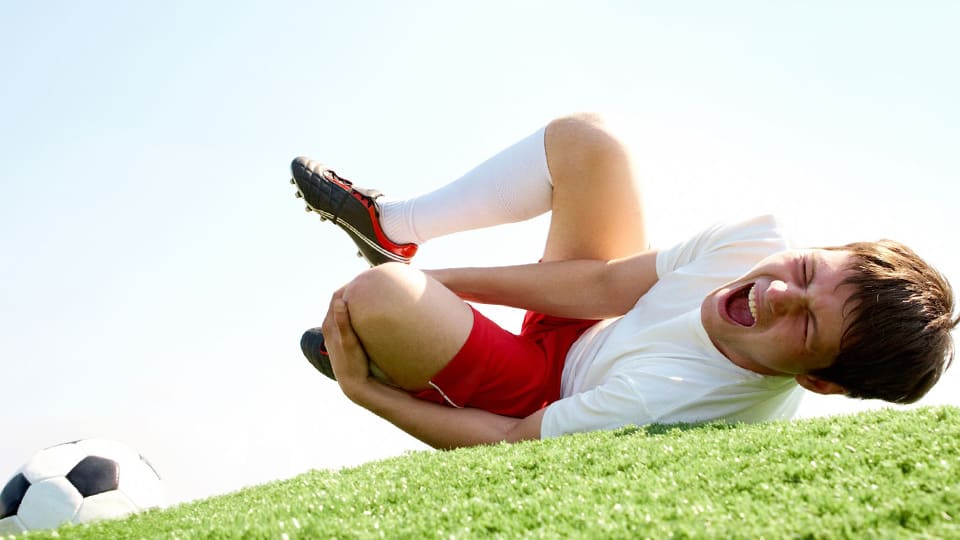
Strength Training and Conditioning
Strength training is not just for bodybuilders; it’s crucial for athletes looking to prevent injuries. Dr. Gupta recommends incorporating strength training into your fitness routine to build muscle, stabilize joints, and improve overall athletic performance. We can discover more about “Preventing Sports Injuries”
- Target Weak Areas: Identify and strengthen areas of weakness. For example, if you have weak hamstrings, incorporate exercises like hamstring curls and deadlifts into your routine. Strengthening weak areas can reduce the risk of injury.
- Balance Training: Balance is essential for preventing falls and maintaining proper body mechanics. Dr. Gupta suggests incorporating exercises like single-leg squats, stability ball exercises, and yoga into your routine to enhance balance and coordination.
- Core Strength: A strong core stabilizes your entire body and reduces the risk of injuries, especially in the lower back. Planks, Russian twists, and leg raises are excellent exercises for building core strength. We can check more about “Preventing Sports Injuries”
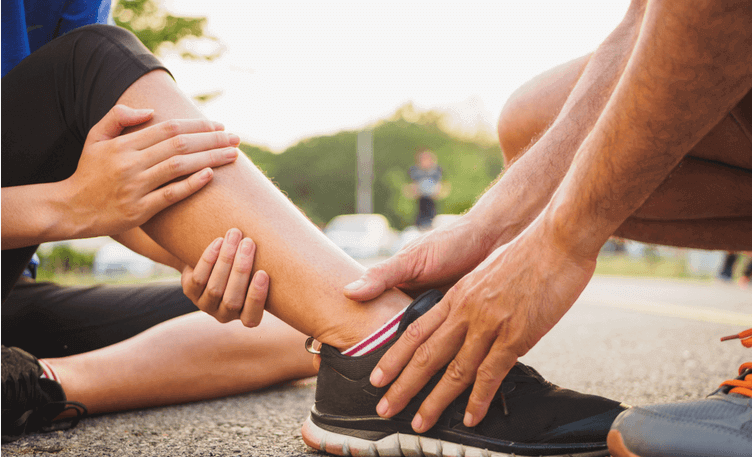
Proper Technique and Form
Using the correct technique and form is crucial in preventing sports injuries. Dr. Gupta stresses that improper technique not only reduces performance but also increases the risk of injury. Whether you’re lifting weights, running, or playing a sport, always focus on maintaining proper form.
- Seek Professional Guidance: If you’re new to a sport or exercise, consider working with a coach or trainer to learn the correct techniques. This investment in your education can prevent injuries and improve your performance.
- Listen to Your Body: Pain is your body’s way of telling you something is wrong. If you experience pain during an activity, stop immediately and assess your form. Continuing to exercise through pain can lead to more severe injuries. We can discuss more about “Preventing Sports Injuries”
Read More:
Rest and Recovery
Rest and recovery are as important as training. Overtraining and inadequate recovery time can lead to overuse injuries, such as tendinitis and stress fractures. Dr. Gupta advises athletes to listen to their bodies and prioritize rest.
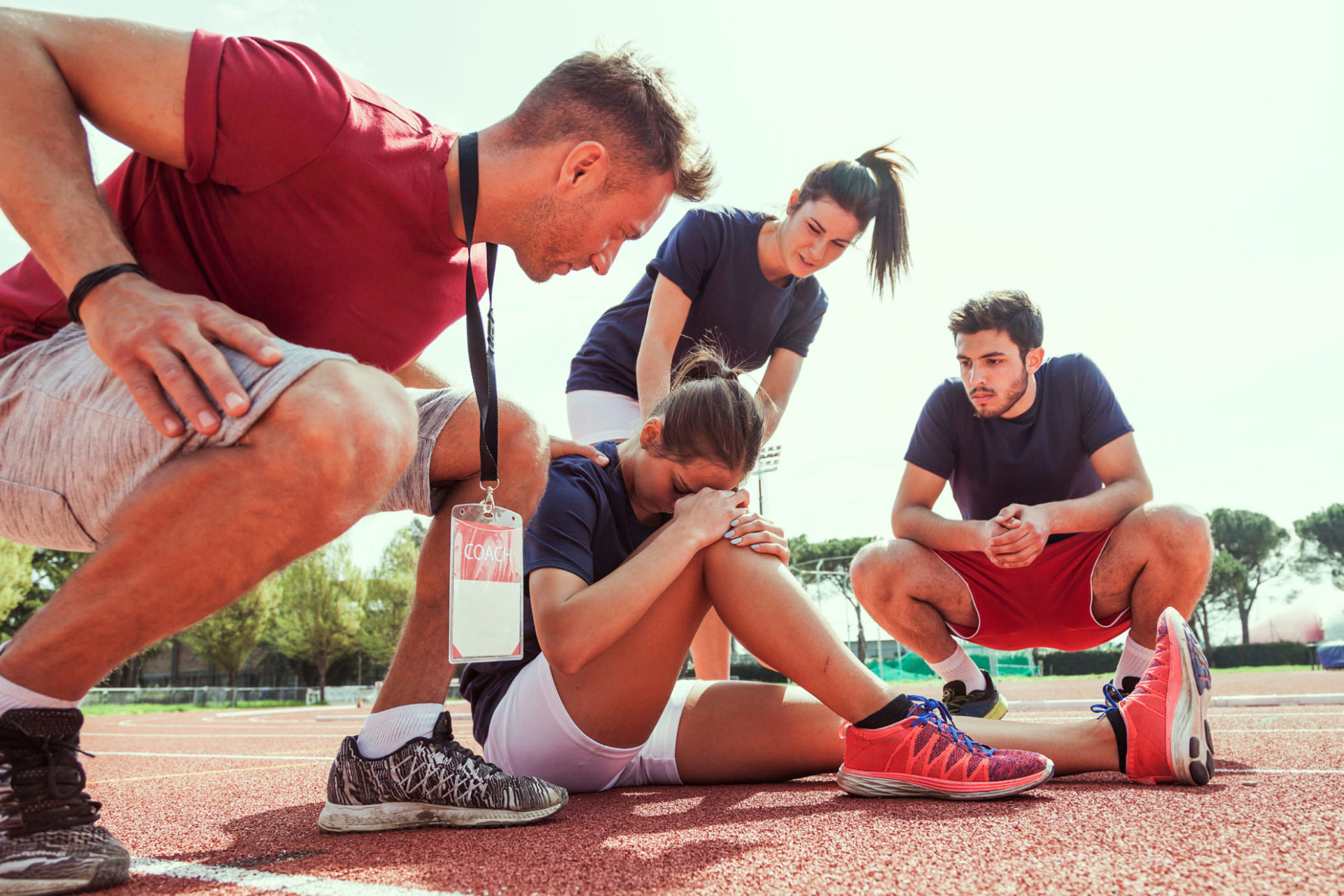
- Schedule Rest Days: Incorporate rest days into your training schedule. This allows your muscles to repair and recover, reducing the risk of overuse injuries.
- Active Recovery: On rest days, engage in low-intensity activities like walking, swimming, or yoga. Active recovery promotes blood flow to the muscles, aiding in the recovery process.
- Sleep: Ensure you get enough sleep, as it is during sleep that the body repairs and regenerates. Aim for 7-9 hours of quality sleep per night.
Hydration and Nutrition
Proper hydration and nutrition play a significant role in injury prevention. Dehydration and poor nutrition can impair your performance and increase the risk of injury.
- Stay Hydrated: Drink plenty of water before, during, and after exercise. Dehydration can lead to muscle cramps, fatigue, and impaired judgment, increasing the risk of injury.
- Balanced Diet: Consume a balanced diet rich in protein, carbohydrates, and healthy fats. Protein is essential for muscle repair, while carbohydrates provide the energy needed for performance. Healthy fats support joint health.
- Supplements: Consider supplements like calcium and vitamin D to support bone health, especially if you’re at risk for fractures. However, always consult with a healthcare professional before starting any supplement regimen.
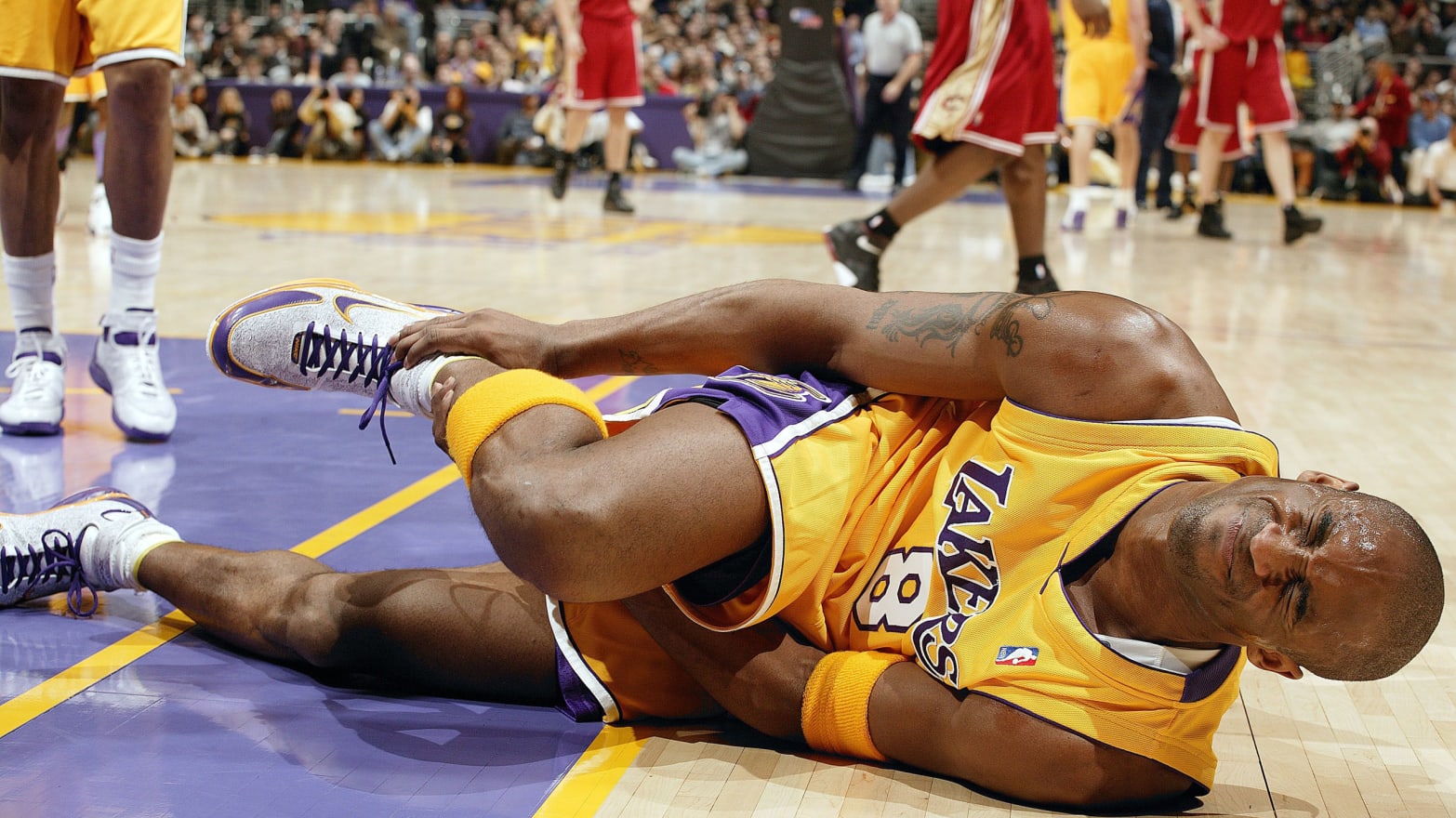
Protective Gear and Equipment
Wearing the right protective gear and using proper equipment is essential in preventing sports injuries. Dr. Gupta emphasizes that safety should never be compromised.
- Wear Appropriate Gear: Whether it’s a helmet for cycling or shin guards for soccer, always wear the appropriate protective gear for your sport. This reduces the risk of serious injuries.
- Proper Footwear: Wearing the right shoes for your sport can prevent injuries like sprains, strains, and fractures. Ensure your footwear provides adequate support and fits well.
- Replace Worn-Out Equipment: Over time, sports equipment like shoes, helmets, and pads can wear out, reducing their effectiveness. Regularly check and replace equipment as needed to ensure optimal protection.
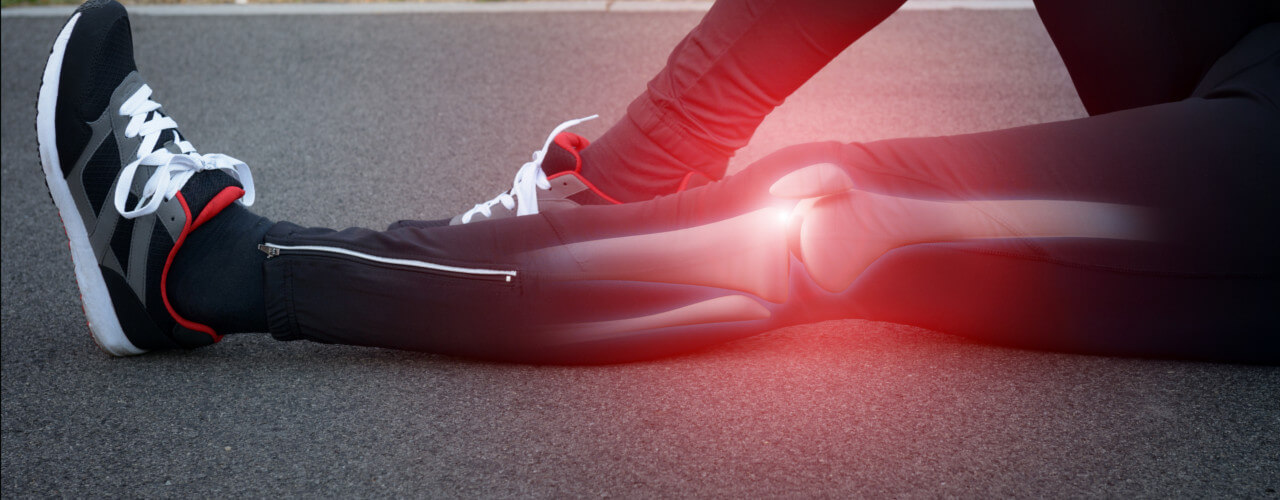
Mental Preparation
Mental preparation is often overlooked in injury prevention, but it’s just as important as physical preparation. Dr. Gupta highlights the importance of staying focused and mentally prepared during sports activities.
- Visualization: Visualize yourself performing well and injury-free. This mental practice can improve focus and reduce anxiety, leading to better performance and lower injury risk.
- Stay Calm Under Pressure: Sports can be intense, and pressure can lead to poor decisions that increase the risk of injury. Practice staying calm and making smart decisions under pressure.
- Mind-Body Connection: Develop a strong mind-body connection through practices like mindfulness and meditation. This helps you stay in tune with your body’s signals and recognize when something feels off.
Early Intervention and Treatment
Even with the best prevention strategies, injuries can still happen. Dr. Gupta emphasizes the importance of early intervention and treatment to prevent minor injuries from becoming major issues.
- Don’t Ignore Pain: If you experience pain or discomfort during sports activities, don’t ignore it. Early intervention can prevent a minor injury from becoming a serious one.
- Consult a Professional: If you suspect an injury, consult an orthopedic specialist like Dr. Gupta. Early diagnosis and treatment can lead to a faster recovery and reduce the risk of complications.
- Rehabilitation: If you do suffer an injury, follow your rehabilitation plan diligently. Physical therapy and rehabilitation exercises are essential for regaining strength and preventing future injuries.

Conclusion Of Preventing Sports Injuries
Preventing sports injuries requires a comprehensive approach that includes proper warm-up, strength training, technique, rest, hydration, and mental preparation. By following these tips and insights from Dr. Gautam Gupta, athletes can reduce their risk of injury and continue to enjoy the sports they love.
Dr. Gupta’s extensive experience in treating sports injuries and his commitment to patient care make him a trusted expert in the field of orthopedics. Whether you’re a professional athlete or a recreational sports enthusiast, Dr. Gupta’s Bone And Joint Clinic in Kolkata offers the highest standard of care to keep you injury-free and performing at your best. Also can visit the best orthopedic and spine treatment center in Gwalior. We are all powered by Argusdna.
Bone Doctor Gautam Powered By Argusdna
Fellowship Shoulder & Knee Surgery (Germany & Netherland) Ex-Assistant Professor (W.B.M.E.S)
Sports Injury Consultant (Indian Football Association, W.B., Chapt) Reg. No. 6342Dr. Gautam Gupta[M.S. (ORTHO)]
2 (WBMC),
Phone No. : +91 62917 71106
Email Id : contact@bonedoctorgautam.com
Bone And Joint Clinic – Best Joint Replacement Clinic | Best Orthopedic Clinic in Kolkata
:591, Tagore Park Rd, Tagore Park, Kasba, Kolkata, West Bengal 700039
Link:https://g.page/r/CbQzKPsoxiZVEBM/
Dr Gautam Gupta – Best Knee Replacement Surgeon | Best Hip Replacement Surgeon | Best Sports Injury Surgeon in Kolkata: 591 Laskar Hat Road Near Tagore Park Auto Stand, Kolkata, West Bengal 700039






